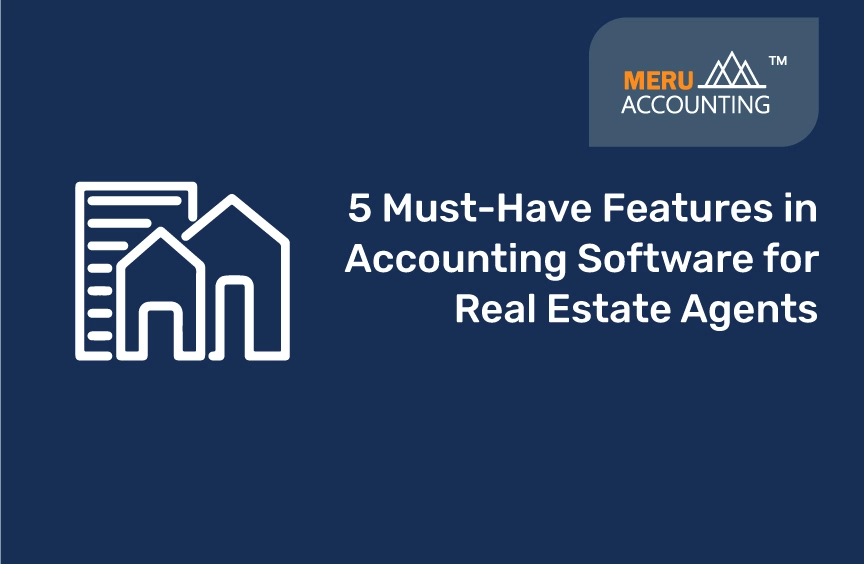
Managing multiple tasks like finding properties, handling listings, and serving clients keeps real estate agents busy. The last thing you want to worry about is bookkeeping, but good financial management is vital for success. That’s where accounting software for real estate comes into play.
Choosing the right bookkeeping software can be overwhelming with so many options available. The goal is to find software with features tailored to the real estate industry, helping you streamline your accounting tasks and focus more on growing your business.
Must-Have Features in accounting software for real estate
- Automated Rent Collection: Collecting rent is one of those tasks that seems simple until you’re doing it at scale. Chasing down tenants for payments is time-consuming, and manual processes can lead to errors. Automated rent-collecting bookkeeping software gets that quick for you. It simplifies the entire process, ensuring timely payments, sending reminders automatically, and even offering online payment options. This saves you time and helps you maintain a steady cash flow without the headache.
- Expense Tracking: Real estate investing comes with a list of expenses—maintenance, repairs, marketing, you name it. Keeping a record of all these costs manually can be a nightmare, especially when tax season rolls around. That’s why expense tracking is one of the must-have features in accounting software for real estate. It helps you monitor and categorize your expenses in real time, making it easier to manage your finances and stay on top of your budget.
- Financial Reporting: Understanding the financial health of your business is crucial, and detailed financial reporting makes that possible. You require bookkeeping software that gives detailed reports on your income, expenses, profit and loss, and cash flow. These insights help you make informed decisions about where to invest, where to cut back, and how to grow your business effectively. You are operating in the dark without reliable financial reporting.
- Bank Account Integration: Manually inputting transaction data is not only time-consuming but also susceptible to errors. With bank account integration, your software automatically uploads and categorizes transactions, ensuring that your financial records are always up-to-date. This seamless connection between your bank accounts and your accounting software saves you hours of data entry, reduces the risk of mistakes, and keeps everything accurate and in sync.
- Invoicing and Payment Reminders: Maintaining a consistent cash flow is essential when managing clients or tenants, especially in the real estate sector. Implementing tailored accounting software for real estate can significantly simplify financial management, ensuring timely payments, accurate record-keeping, and effective budgeting. Efficient invoicing and automated payment reminders are essential features that ensure you get paid on time. The right bookkeeping software allows you to send professional invoices, set up automatic reminders, and even track payment status—all from one platform.
Conclusion
Choosing the right real estate accounting software isn’t just about ticking boxes; it’s about finding a solution that simplifies your life, automates repetitive tasks, and lets you focus on what matters—growing your real estate business. With features like automated rent collection, expense tracking, financial reporting, bank account integration, and invoicing, you’ll have everything you need to manage your finances efficiently. Trust Choosing Meru Accounting means investing in a firm that enhances your efficiency and accuracy, allowing you to focus more on growing your real estate business. With our expertise, you’ll spend less time on bookkeeping and more time expanding your portfolio.

